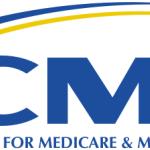Access to affordable, high-quality health care is essential — particularly for more vulnerable Americans such as seniors and the disabled.
Medicare
Drug Coverage’s Carrot and Stick
Interest rates are a significant factor in the health of any economy.
Commercial insurance, that employer-provided benefit, initially a workaround to World War II price controls, provides most health coverage to Americans.
Despite a decade of indisputable evidence that we are not having an "opioid crisis." but rather a "heroin/fentanyl crisis" you might think that people might start to figure this out and act accordingly.
On October 15th, Medicare’s version of trick or treat opens its doors. From that date until December 7th, Medicare beneficiaries have the option and opportunity to modify their out-of-pocket costs for the next year.
The key problem for many struggling with the treatment of resistant infections and a paltry pipeline of new antibiotics has been the lack of a return on investment for companies trying to discover and develop new antibiotics. In hospi
The public forum is dominated by discussions surrounding access to medical care. In part, calls for expanded “health care” abound with the term often a misnomer.
Several Medicare for All proposals are on the table. I intuitively liked one alternative, a Medicare buy-in for those age 50 to 64; moving towards a well-functioning single payer system and more incremental than Medicare for All.












